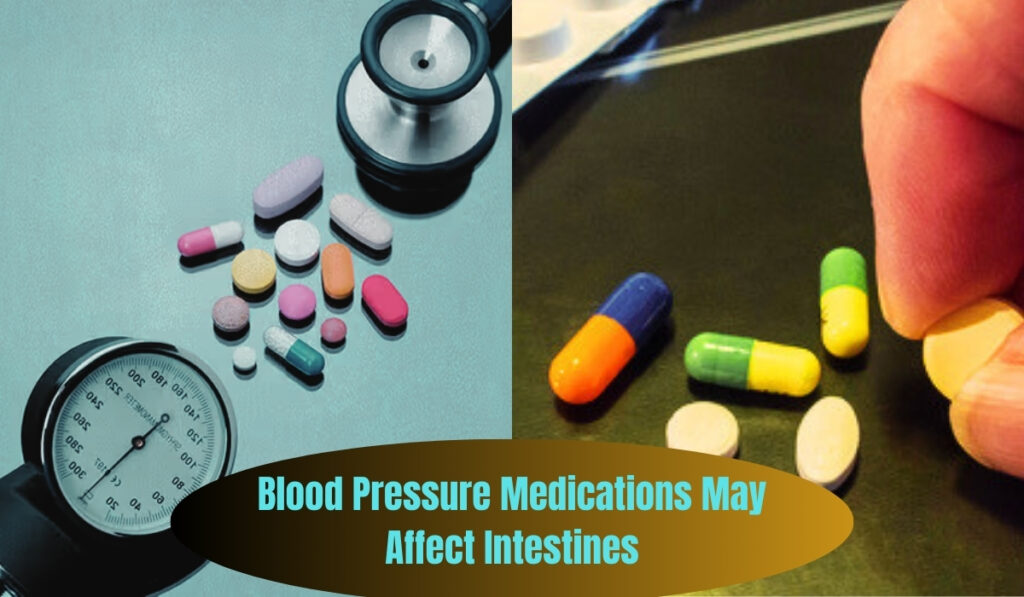Blood Pressure Medications May Affect Intestines

Introduction
A recent report has brought to light a potential connection between the use of blood pressure medications and the development of an intestinal condition known as diverticulosis. This article aims to provide a comprehensive overview of diverticulosis, including its definition, symptoms, and potential causes.
Diverticulosis is a condition where small, bulging pouches called diverticula form in the lining of the digestive tract, particularly in the colon. While many individuals with diverticulosis may remain asymptomatic, some can experience discomfort, abdominal pain, and digestive issues.
The new report suggests that certain blood pressure medications might be linked to an increased risk of developing diverticulosis. This connection is of particular concern as it may have implications for how these medications are prescribed and managed.
The article will delve into the specifics of how these medications could potentially contribute to the development of diverticulosis, exploring possible mechanisms and the role of drug side effects in this process.
Additionally, the significance of this finding will be discussed, emphasizing the need for further research to understand the relationship between blood pressure medications and diverticulosis more clearly. The implications for patients, healthcare providers, and the broader medical community will be examined, highlighting the importance of balancing the benefits of blood pressure control with the potential risks of developing related health conditions.
This article will also address potential preventive measures and alternative treatment options for individuals at risk, aiming to provide a well-rounded perspective on this emerging issue.
4o mini
What is Diverticulosis?
Diverticulosis is a condition where little, swelling pockets (diverticula) structure in the covering of the gastrointestinal system. These pockets are more normal in more established grown-ups and can some of the time cause extreme confusions in the event that they break.
The Study
A team of scientists, led by Imperial College London, conducted a study to explore the effects of three common types of blood pressure medications:
- Beta-blockers
- ACE inhibitors
- Calcium channel blockers
Dr. Dipender Gill, the lead author, stated that this is the first study to link these specific blood pressure medications to diverticulosis.

Blood Pressure
Findings
The study found that calcium channel blockers, in particular, might increase the risk of developing diverticulosis. This discovery is significant because it provides new insights into the side effects of these medications.
Importance of the Study
Understanding the side effects of blood pressure medications is crucial because high blood pressure affects one in ten adults worldwide. High blood pressure, if untreated, can lead to heart attacks and strokes.
Treatment for High Blood Pressure
The simplest and often most effective way to manage high blood pressure is through lifestyle changes, such as:
- Eating a healthy diet
- Exercising regularly
- Reducing salt intake
- Limiting alcohol consumption
- Managing stress
Conclusion
This study illuminates a previously unrecognized side effect associated with calcium channel blockers, a common class of medications used to manage high blood pressure. The discovery of this potential link underscores the critical need for thorough monitoring and cautious consideration when prescribing these medications.
Calcium channel blockers are widely prescribed for their effectiveness in controlling hypertension and other cardiovascular conditions, but the new findings suggest that they may also contribute to the development of diverticulosis, an intestinal condition characterized by the formation of small pouches in the colon.
The study highlights the importance of evaluating not only the benefits of blood pressure medications but also their potential risks, particularly in the context of long-term use. Healthcare providers are encouraged to remain vigilant and to weigh the potential side effects against the therapeutic benefits when making treatment decisions.
This revelation calls for an informed approach to prescribing practices, including regular patient assessments and the consideration of alternative treatment options if necessary.
For a more in-depth understanding of this issue, readers are encouraged to refer to the original research conducted by Imperial College London, which offers detailed insights and data on this newly identified side effect. Additionally, statements from Dr. Dipender Gill, a key researcher involved in the study, provide valuable context and expert analysis on the implications of these findings for clinical practice and patient care.
The study and expert commentary together emphasize the need for ongoing research and awareness to ensure safe and effective use of calcium channel blockers in managing blood pressure.
Table of Contents
Reference
For further reading, you can refer to the articles on ScienceDaily and The People’s Pharmacy for more detailed information on the topic:



2 thoughts on “Blood Pressure Medications May Affect Intestines”